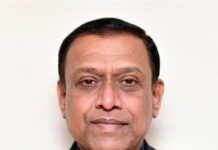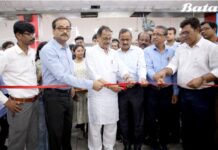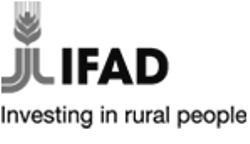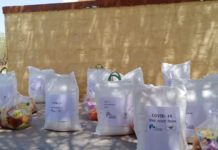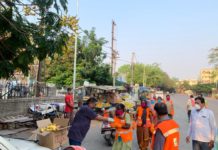Rome, November 27, 2015 : As Pope Francis began his first trip to Africa this week, the President of the International Fund for Agricultural Development (IFAD), Kanayo F. Nwanze calls for unity, resilience and dignity “in the face of those who wish to divide us”at an event today hosted by the Holy See on the Pope’s encyclical.
Relevant to the Pope’s visit Nwanze said, “What happens in a small village in Africa can have a ripple effect that reaches Europe and beyond.” He added that the world’s “problems and solutions are not limited by geographic or political boundaries.”
Speaking alongside Cardinal Beniamino Stella and Monsignor Fernando Chica Arellano, Permanent Observer of the Holy See to the United Nations agencies in Rome, Nwanze called the “invisible people of the developing world” part of “our shared humanity” and said that “their poverty is our poverty; their hunger is our hunger; and their dignity is our dignity.”
With international climate change talks starting in a few days, Nwanze’s keynote at the Holy See event echoed what the Pope said shortly after arriving in Kenya when he urged world leaders to pursue economic development while protecting the environment for future generations.
Nwanze called for “investing in change that is social as well as economic so that rural areas are socially viable and economically vibrant,” as well as a “change that is comprehensive and inclusive in its nature and lasting in its impact.” He went on to say that “a world without small farmers would be a hungry world. The future of humanity depends on a sustainable food supply based on sustainable agricultural practices.”
This will be the message Nwanze will take to the 21st UNCCD Conference of Parties (COP21) in Paris next week, where he will be engaged in several side-events including the press launch on 4 December of an IFAD research report that looks at how media coverage has been missing key connections between climate change, migration and food.
The event today was organized by the Ateneo Pontificio Regina Apostolorum and Università Europea of Rome in collaboration with the UNESCO Chair in Bioethics and Human Rights, which encourages a wide exchange of ideas through dialogue among international institutions of higher education especially with developing countries.
“Poor rural people are not waiting for hand-outs; they are looking for economic opportunities and a safe home for their families,” Nwanze said in conclusion of his keynote address at the Holy See event. “Young people who can see a future for themselves at home have little reason to migrate to urban centers and big cities, where too often they fall prey to divisive rhetoric and extremism.”
Corporate Comm India(CCI Newswire)




